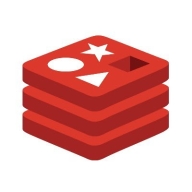

Find out in this report how the two Database as a Service (DBaaS) solutions compare in terms of features, pricing, service and support, easy of deployment, and ROI.


Microsoft Azure SQL Database is a relational database-as-a-service that delivers predictable performance, scalability, business continuity, data protection, and near-zero administration to cloud developers and solution architects. This is the deep technical library for Azure SQL Database.
Redis is a high-performance, scalable, and easy-to-use caching solution that improves application performance. It is also used for session management, real-time analytics, and as a message broker.
Redis's valuable features include its ability to handle large amounts of data quickly, its simplicity and straightforward setup process, and its support for various data structures, providing flexibility for different use cases.
We monitor all Database as a Service (DBaaS) reviews to prevent fraudulent reviews and keep review quality high. We do not post reviews by company employees or direct competitors. We validate each review for authenticity via cross-reference with LinkedIn, and personal follow-up with the reviewer when necessary.